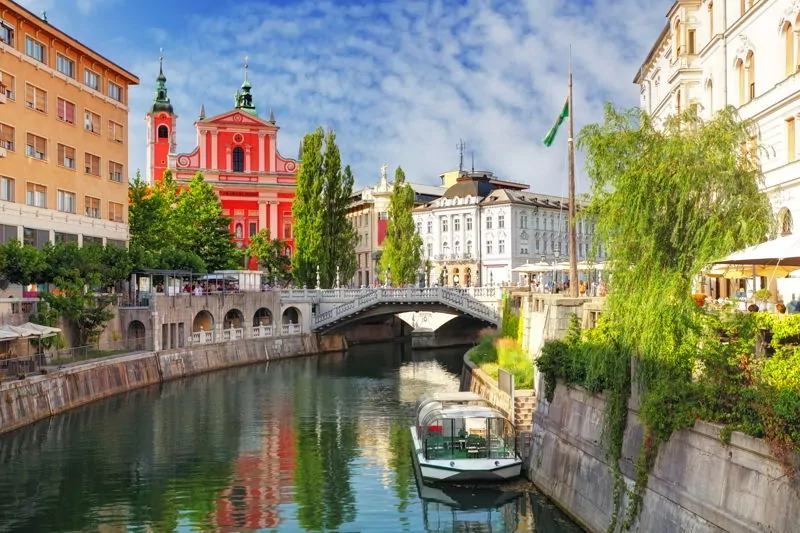It’s in the news daily… it’s a common topic of conversation… scientists across the globe are studying it… every year we witness more and more weather extremes…
But what does climate change mean to someone who is considering a move overseas?
Experts predict some locations around the world will be more severely affected by climate change than others. This was one of the most important factors in my decision to move from Northern Illinois to Colombia four years ago.
As I write this article, I’m sitting on my balcony, enjoying 75°F weather, smiling as I look at my friends’ photos online showing the results of the early blizzard that dumped over a foot of snow on parts of the United States recently.
Expected Effects Of Climate Change
NASA reports these likely changes over the next century:
- More frequent wildfires.
- Longer droughts.
- Increase in the number, duration, and intensity of tropical storms.
- Loss of sea ice.
- Acceleration in the rise in sea levels.
- Longer, more intense heat waves.
- Longer frost-free growing seasons.
- Changes in precipitation patterns.
- Increased flooding.

The European Commission reports that Southern and Central Europe will experience more frequent heatwaves and droughts, increasing the risk of wildfires. Meanwhile, Northern Europe expects significantly wetter conditions, making floods commonplace. Finally, urban areas—where 80% of Europeans live—could experience heatwaves, flooding, and rising sea levels… conditions these areas are ill-equipped to handle.
These predictions are already coming to life in many parts of the world. As climate change continues, these extreme weather conditions will only worsen.
How Will We Be Affected?
As ice melts, it expands. Icebergs are no different… as they begin to melt with increasing temperatures, this will lead to flooding, coastal erosion, and loss of low-lying lands. Warmer air also holds a higher water content, so we can expect more extreme rainfall patterns. With extreme weather, water quality will decrease, along with the availability of clean water resources.
We will likely see serious health risks associated with these changes. Although cold-related deaths may go down, we can expect heat-related deaths to rise. Exposure to waterborne illnesses could increase, and disease distribution may change.
Humans won’t be the only species affected. Many plant and animal species are already struggling, and scientists are tracking different marine animals that have started relocating. The risk of extinction for some animals has already increased.
The business sectors likely to be hit the hardest include agriculture, forestry, energy, and tourism. Unless changes are made to these industries now, climate change will do severe damage, resulting in a ripple effect on the global economy.
Will Any Place Be Unaffected?
The entire Earth will be affected by climate change. However, different areas will experience different effects, so the question is… which locations will experience the fewest changes?
Some scientists predict the polar regions will suffer the most dramatic outcomes. Other studies project the greatest warming effects over landmasses, especially in the high northern latitudes, while the least warming effects will occur over southern oceans and parts of the North Atlantic Ocean.
Regions of concern also include the Arctic, Africa, and Asian mega deltas. Low-latitude, less developed areas are at greater risk, but developed countries are also vulnerable to increased severity and frequency of extreme weather events.
So Where Should You Live?
While there is no perfect place to avoid the impact of climate change, my research reveals several locations that’ll abate these effects:
- Due to expected flooding, avoid coastal areas and seek higher ground inland, preferably mountain areas with ample freshwater supplies.
- With increasing temperatures, current arid locations may become uninhabitable. Look to higher altitudes for cooler overall temperatures.
- Expecting a negative effect on existing agricultural systems, consider places where you can grow your own crops.
- As the polar regions may experience the greatest change, stay away from far-north and far-south latitudes and focus your search closer to the equator.
- At the same time, don’t get too close to the equator, as that is where temperatures will be highest.
I Recommend These Options If You Are Concerned About Climate Change:

In The Americas
Colombia
Medellín, Colombia, is a mountain city with lots of green space, some of the best fresh water in Latin America, moderate temperatures—and it’s surrounded by fertile land. If Medellín is too big for you, other areas in Colombia offer similar advantages in different-sized communities.
Ecuador
Another country where you’ll find thriving mountain towns is Ecuador. Quito and Cuenca check all the boxes. Quito is a bigger city with all of the associated amenities. Cuenca is a smaller, Spanish-colonial town with an established expat community and plenty of activities to keep you busy.
Belize
I also recommend the Cayo region of Belize. It’s inland, globally positioned in the central latitude area, and some residents already live off the grid in sustainable developments.
In Europe
In Europe you should consider France, Italy, Hungary, and Slovenia. In France, Carcassonne offers country living near a river and a freshwater lake, while Città Sant’Angelo, in Italy, boasts a ski resort with vineyards and orchards all around.
Other European locations worth considering are Budapest, Hungary, and Ljubljana, Slovenia. Ljubljana is in a biodiverse, mountainous area with a rich underground aquifer system and lush forest spaces. Budapest offers hilly, forested residential living on the Buda side of the Danube River, while Pest is flatter and bursting with energy and activities.
The environment is but one essential factor you should consider when deciding where to live or buy property abroad. As climate changes, the top places to live and invest will also change. Stay posted.
Wendy Howarter

